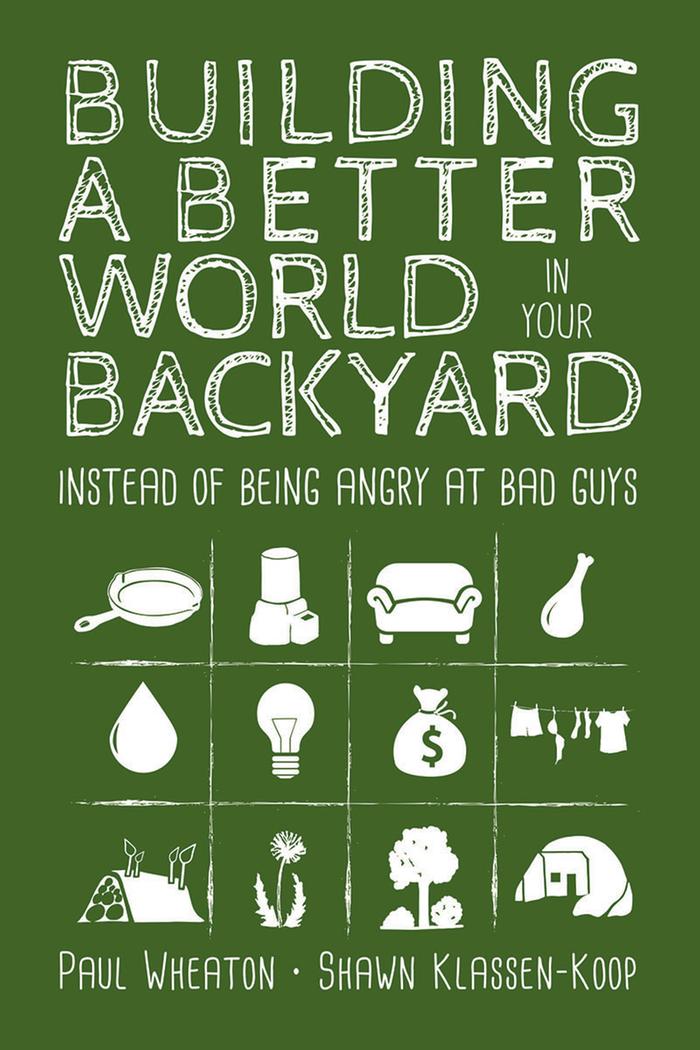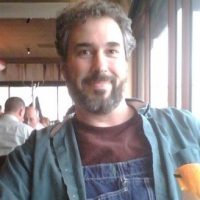
An excerpt from Paul Wheaton’s book, Building A Better World In Your Backyard Instead Of Being Angry At Bad Guys.
~
The Wheaton Eco Scale
Ten years ago, a newspaper columnist quit her “trying to be green” column after one year.
Readers would write in, telling her what to put in the column. Eventually, those messages came with the words “or else.” She decided to end the column after receiving death threats from several readers. Readers that are all about hearts, flowers, and rainbows…and, apparently, death threats.
To respond to this travesty, I created the Wheaton Eco Scale. Since its creation, this scale has been handy for hundreds of things. Every person who reads this book will be at a different point on the journey toward ecological awesomeness. Talking to others about their journey can be inspiring, humbling, annoying, or infuriating. My hope is that this scale will reduce conflict and improve acceptance in the struggle for solving global problems. I encourage you to make up scales too. It’s fun!
I went to the scale store and decided that I wanted the very best for you. So I selected a “base-10 reverse logarithmic scale.” Yummy.
Here is how it turned out:
At level 0 there are about 6 billion people (about 80 percent of the population).
At level 1 there are 1 billion people (about 15 percent of the population).
At level 2 there are 100 million people (about 1.5 percent of the population).
At level 3 there are 10 million people (about 0.15 percent of the population).
At level 4 there are 1 million people.
At level 5 there are 100,000 people.
At level 6 there are 10,000 people.
At level 7 there are 1,000 people.
At level 8 there are 100 people.
At level 9 there are 10 people.
At level 10 there is 1 person.
Before giving you an idea of what might place you at a particular level, I wish to first share two critical observations about this scale:
The first observation is that most people find folks one or two levels above them to be pretty cool. But people three levels up seem a bit nutty. People four or five levels up seem downright crazy. And people six levels up should probably be institutionalized “for their own safety and the safety of those around them.” I find the latter reactions to be inappropriate. If people seem crazy, they might just be advanced on the same path you’re following.
The second observation is that most people find folks one level back to be ignorant, and people two levels back seem like assholes. Any further back and people start to think that the person should be shot on sight for the betterment of society as a whole. I find that all of these reactions are inappropriate—people will not change if you yell at them or hit them with sticks. But they will change if you tell them about the cool stuff that’s just a little bit ahead of where they are now and skip the stuff that is far ahead of them.
Below are some possible attributes of people on the Wheaton Eco Scale. Keep in mind that this is not a checklist or a quiz meant to place you at a particular level, but an effort to paint a general picture of what the different levels look like. If you don’t know what something means, don’t worry, we’ve got lots of book left.
Level 0: Thinking about the environment is something that “other people” do. If a level 0 person sees a dandelion in their yard, their solution is poison. Average carbon footprint of 30 tons.
Level 1: Thinking about the environment. Bought some “better” light bulbs. Trying some recycling. Reads an article or two. Buys some organic food. Their power bill is less than average. Learning how to compost. Carbon footprint is 29 tons.
Level 2: Has a recycling system. Reads at least one article a week. Power bill is 80 percent of average. Thirty percent of purchased food is organic. Ten percent of purchased food is local. Growing a small garden. Has a compost pile. Learning about natural building. Has attended some free workshops and lectures. Maybe read a book. Pulls dandelions. Carbon footprint is 27 tons.
Level 3: Contemplating “zero waste” and producing about a 10th of the landfill material of an average person. Has a pretty good-sized organic garden—grows about 20 percent of their own food. Eighty percent of purchased food is organic. Two percent of food is wildcrafted. Power bill is half of the average. Reads something almost every day. Has read a few things about permaculture. Has read at least a couple dozen books. Has attended several paid workshops. Pooless. No more fluorescent light bulbs. Avid composter. Has eliminated 95 percent of the toxic gick from their home. Very concerned about environmental problems. Carbon footprint is 20 tons.
Level 4: Grows 50 percent of their own food. Ninety five percent of purchased food is organic. Eight percent of food is wildcrafted. Passionately studying permaculture. Incandescent lights are preferred and used wisely. Power bill is 30 percent of average. Allows dandelions, eats some of them, and enjoys blowing on dandelion seed heads. Carbon footprint is 10 tons.
Level 5: Has taken a permaculture design course (PDCs). Grows 90 percent of their own food. Participating in building/sharing knowledge online. Might teach a small free class or workshop. Carbon footprint is zero.
Level 6: Living a footprint that is one tenth of the average. Maybe living in community. Maybe living in something very small. Actively sharing knowledge and starting to get paid to teach. Exchanges dandelion seeds with others to get a really great tasting dandelion. Carbon footprint is -30 tons.
Level 7: Teaching PDCs. Inventing things that will change our future for the better. Writing a first book or creating a first movie that will influence the future. Influencing thousands of people to make significant changes for the better. Carbon footprint is -200 tons.
Level 8: Writing many books, creating many movies—influencing millions of people to make significant changes for the better. Doing things that are improving the world in big ways. Carbon footprint is -1000 tons.
Level 9: Willie Smits, Masanobu Fukuoka, Paul Stamets, Art Ludwig, Bill Mollison, Ianto Evans…
Level 10: Sepp Holzer
It’s my scale, so I can put whomever I want at level 10. I choose Sepp Holzer. If you want someone else at level 10, go make your own scale.
I wish to reiterate that my mission with this scale is not to assign everybody a number. My mission is to clarify a problem. The real point I needed to make was about how people who are on the eco path tend to despise the people behind them and think the people way ahead of them are nuts. I have seen this happen hundreds of times. I hope that by showing the scale, people will be more aware of the problem and, hopefully, we will have better progress.
~











Read 0 comments and reply